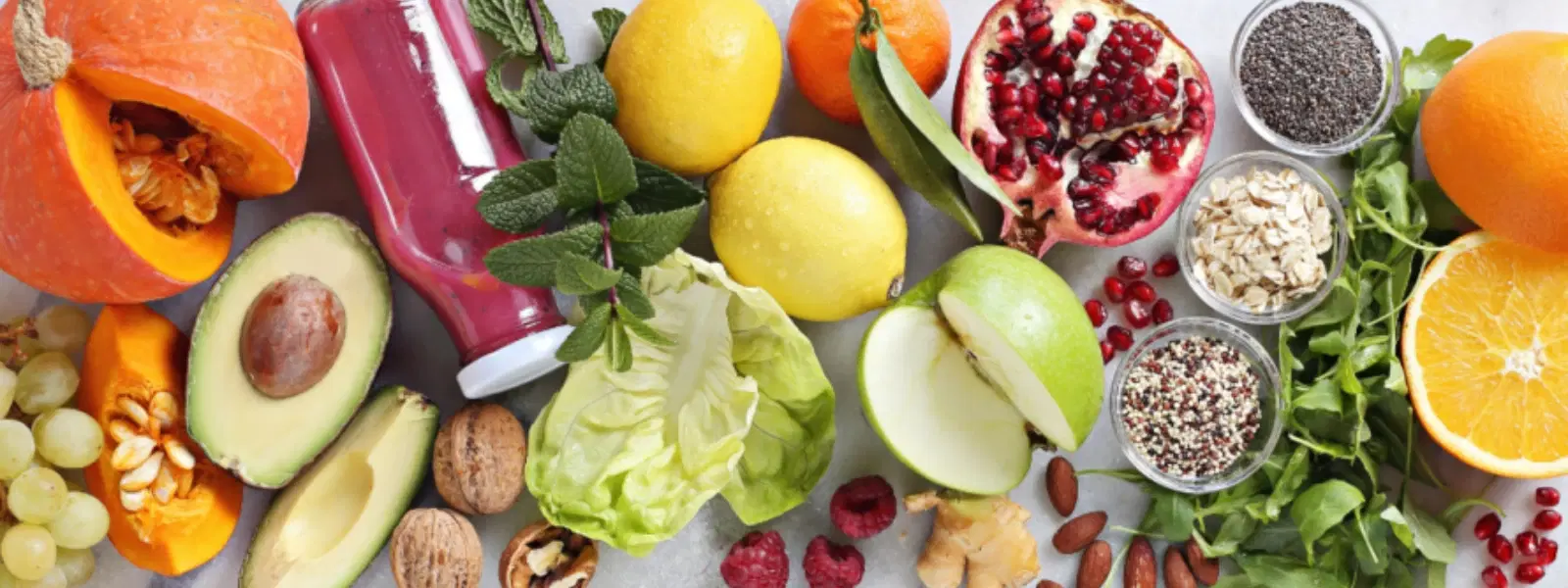
Beauty & Skincare
•04 min read
-9872eb55-9af0-4022-8644-bd8f05e8333e.png&w=3840&q=75)
Hormonal acne can feel like an endless circle of ups and downs. But imagine if each meal you ate also helped to clear your skin. This blog offers a practical checklist that shows how your diet can serve as a powerful ally in managing breakouts and boosting your natural glow. Here, you'll learn how to balance hormones through your food choices and discover tips for embracing a skin-friendly lifestyle that connects skincare and nutrition.
Hormonal acne often strikes when your body undergoes fluctuations in hormones like androgens, leading to excess oil production and clogged pores. Recent insights indicate that everyday dietary choices can influence these hormonal shifts. For instance, high-glycemic foods can trigger an insulin spike. This spike may indirectly elevate androgen production, worsening skin issues. In addition, the foods you choose can either fuel inflammation or help to reduce it. Maintaining a healthy gut microbiome is also key, as gut health and acne are closely linked; a balanced gut can support proper hormone regulation and reduce inflammatory responses. Understanding these connections empowers you to make changes that benefit your skin from within.
Transform your diet into a secret weapon for clear, radiant skin by adding skin-friendly foods designed to support both hormonal balance and overall nutrition. Start by incorporating anti-inflammatory foods for acne. Fatty fish like salmon and mackerel are rich in omega-3 fatty acids, which are known to reduce inflammation. Brightly colored fruits and vegetables provide antioxidants that protect your skin, and green tea is an excellent beverage choice thanks to its polyphenols. Next, focus on the best foods for hormonal balance. Whole grains and low-glycemic carbohydrates stabilize blood sugar, while avocados and nuts supply healthy fats that support hormone production. Leafy greens such as spinach are ideal for their magnesium content, which can help manage stress hormones. Complement your routine with probiotic-rich foods like yogurt, kefir, and fermented options such as kimchi, which promote gut health. This combination offers a robust approach to building a diet for acne-prone skin that works from the inside out.
Pro Tip: "Balance Your Plate for Balanced Hormones"
Try combining lean protein, healthy fats, and low-glycemic carbs at every meal. This mix helps keep blood sugar steady, reducing the hormonal fluctuations that often trigger acne. Think of your meals as a canvas for natural beauty, where each ingredient contributes to your ultimate glow.
While what you eat is crucial, equally important is knowing which foods to leave off your plate. High-glycemic foods such as white bread, pastries, and sugary cereals can cause rapid insulin spikes, making acne worse over time. Soda and sweetened beverages are also known culprits that fuel inflammation. Dairy products, especially certain types of milk and whey protein, can stimulate the production of insulin-like growth factor (IGF-1), which can worsen acne issues. Ultra-processed foods like chips, fast food, and packaged snacks often contain inflammatory oils and additives that compromise your skin's health. Even alcohol, when consumed excessively, disrupts hormonal balance and dehydrates the skin, further contributing to breakouts. Avoiding these items is a critical step in a diet for acne-prone skin, as it helps maintain the natural harmony your body needs for healthy, radiant skin.
-5ba1f1f6-995b-4617-a1ff-43890351cff7.png&w=3840&q=75)
In addition to choosing the right foods, supplementing your diet with essential vitamins and nutrients can further encourage clarity and radiance. Vitamins for acne-free skin like vitamin A, found in foods such as sweet potatoes and carrots, aid in skin cell turnover. Vitamin E, which you can get from almonds and sunflower seeds, acts as a shield against oxidative stress. Zinc, present in products like pumpkin seeds, plays a crucial role in reducing inflammation and speeding up healing. Omega-3 fatty acids also help diminish inflammation and support overall skin health. Do not overlook vitamin D either, as low levels in the body have been linked to increased acne severity. Whether obtained through fortified foods or safe sun exposure, ensuring proper vitamin D levels can contribute to a more balanced skin appearance.
Put these actionable steps into practice to start seeing a difference in your skin's health. Follow this checklist each day to support clear, glowing skin:
Include at least one anti-inflammatory food in every meal, such as fatty fish, green tea, or berries.
Swap high-glycemic carbohydrates for low-glycemic options like quinoa or sweet potatoes.
Add probiotic-rich foods to your routine to nurture gut health, for example, yogurt or kimchi.
Avoid dairy and ultra-processed foods that might trigger breakouts.
Ensure your meals contain key vitamins and minerals like zinc, vitamin A, and omega-3 fatty acids.
This checklist is your roadmap to implementing a diet that not only supports your skin but also promotes overall health. By aligning your daily eating habits with these tips, you pave the way toward a naturally beautiful complexion.

Foods rich in omega-3 fatty acids, antioxidants, and fiber—such as salmon, berries, and leafy greens—are excellent choices for managing hormonal acne.
Focusing on a balanced diet that includes low-glycemic carbohydrates, anti-inflammatory foods, and probiotics, while avoiding dairy and processed snacks, can help reduce hormonal acne.
Milk contains hormones and proteins that may trigger insulin-like growth factor, which can contribute to hormonal acne.
Eggs provide protein and nutrients like biotin that support healthy skin, but enjoy them in moderation, especially if you have sensitivities.
Dealing with hormonal acne doesn’t have to be a mystery. By understanding the role of diet for acne-prone skin and following a thoughtful checklist, you can nurture your skin from the inside out. A combination of anti-inflammatory and hormone-balancing foods, along with essential vitamins and minerals, sets the stage for a naturally glowing complexion. This balanced approach showcases that healthy eating for skin health and overall well-being is well within reach. Embrace these dietary habits and let your inner radiance shine through.